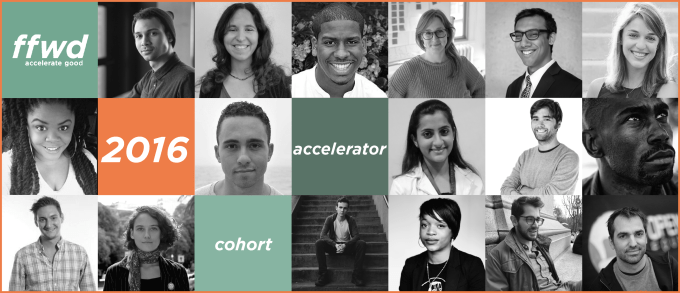An accelerator that helps tech nonprofits develop their products and raise grant money, Fast Forward, has attracted $1.25 million in philanthropic funding of its own.
Backers include big names in venture capital and tech. Omidyar Network, Google.org and BlackRock donated the largest share, along with AT&T, The Nasiri Foundation and Rita Allen Foundation.
Fast Forward will use the money over the next two years to back tech nonprofits in its accelerator, mainly, but also to run their own business. Besides the accelerator, and all the mentoring, recruiting and events that go along with it, Fast Forward maintains a comprehensive, online directory of tech nonprofits.
Generally, tech startups have an overwhelming number of resources when it comes to accelerators or investors willing to help them — as long as they are for-profit. But tech nonprofits face scant resources.
Y Combinator began admitting nonprofits to its accelerator in 2013, but nonprofits are in a minority there. Then, there are niche incubators for nonprofit businesses, but they allow nonprofits that do good work through traditional services, and lack tech focus and expertise.
That’s why Kevin Barenblat and Shannon Farley co-founded Fast Forward in January 2014, to bring tech nonprofits a program tailored to their needs. Fast Forward recently admitted its third cohort of companies.

The 2016 cohort of nonprofit tech startups in the FFWD.org accelerator.
The entrepreneurs are aiming to end police violence, improve education, help foster children and more, with apps, data analytics and other technologies.
Among applicants to its program, Barenblat said that this year there were many more tech nonprofits working on health, education and civic issues, but fewer working to solve environmental problems.
Philanthropic organizations that would not invest grants under $1 million typically, or into early-stage tech nonprofits, are able to do so through Fast Forward.
“They don’t and can’t allocate funds drop by drop, if they aim to invest hundreds of millions a year,” Farley explained. “It is also hard to find the tech startups that are nonprofits, and figure out what is potentially going to be successful in this space when your expertise is around ecology, education, or issues in your local community, but not tech.”
Last year, Google.org donated to nonprofits more than $100 million in grants and $1 billion in technology resources, as well as 80,000 hours of Google employee volunteer services.
Google.org principal Brigitte Hoyer Gosselink said when it comes to Fast Forward, “We are really hands off. We trust their choices. But of course, if they asked for it, we could provide help with due diligence review of nonprofit tech startups.”
Asked why startups should use a nonprofit business model, rather than following in Google’s for-profit footsteps, Gosselink said:
“Working in a nonprofit gives people a deeper permission to positively impact disadvantaged populations of the world. It can be hard to do that, while also hitting the kind of revenue and profitability goals investors may have for a startup otherwise.”
Along with cash contributions to Fast Forward, donors including Google.org provide meeting spaces in the San Francisco Bay Area where nonprofit tech founders can convene, and where Fast Forward can conduct workshops and other events.
To-date, Fast Forward alumni nonprofits have impacted 4.7 million lives, and raised $16 million in charitable funding after the accelerator. Interestingly, 79 percent of Fast Forward-backed nonprofits are founded by women and people of color. More than half of them set up a nonprofit to address a problem that impacts their lives, personally or professionally.
